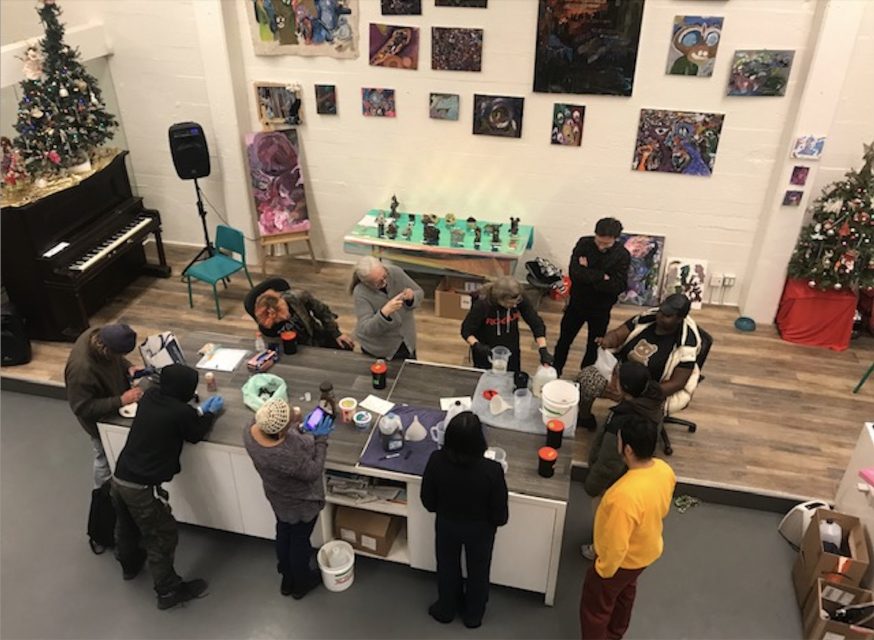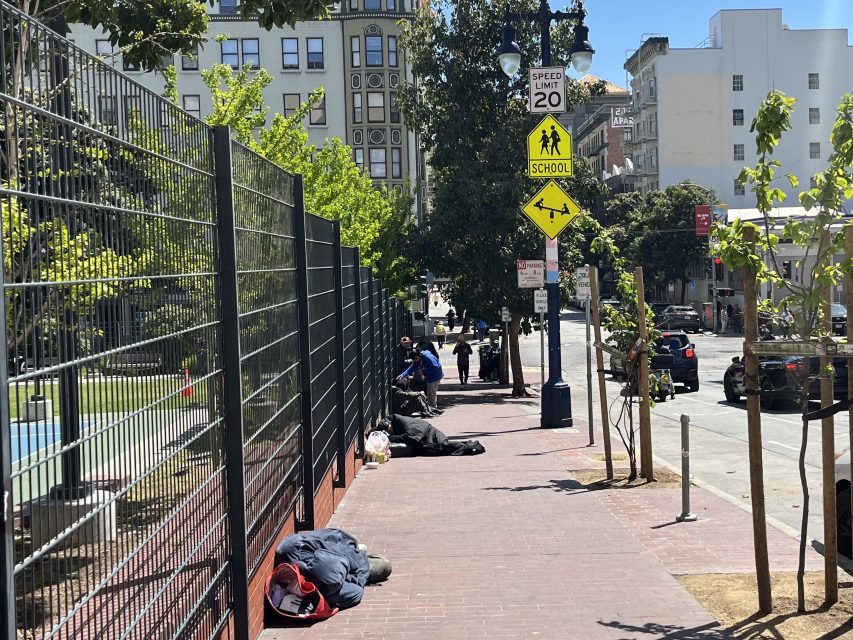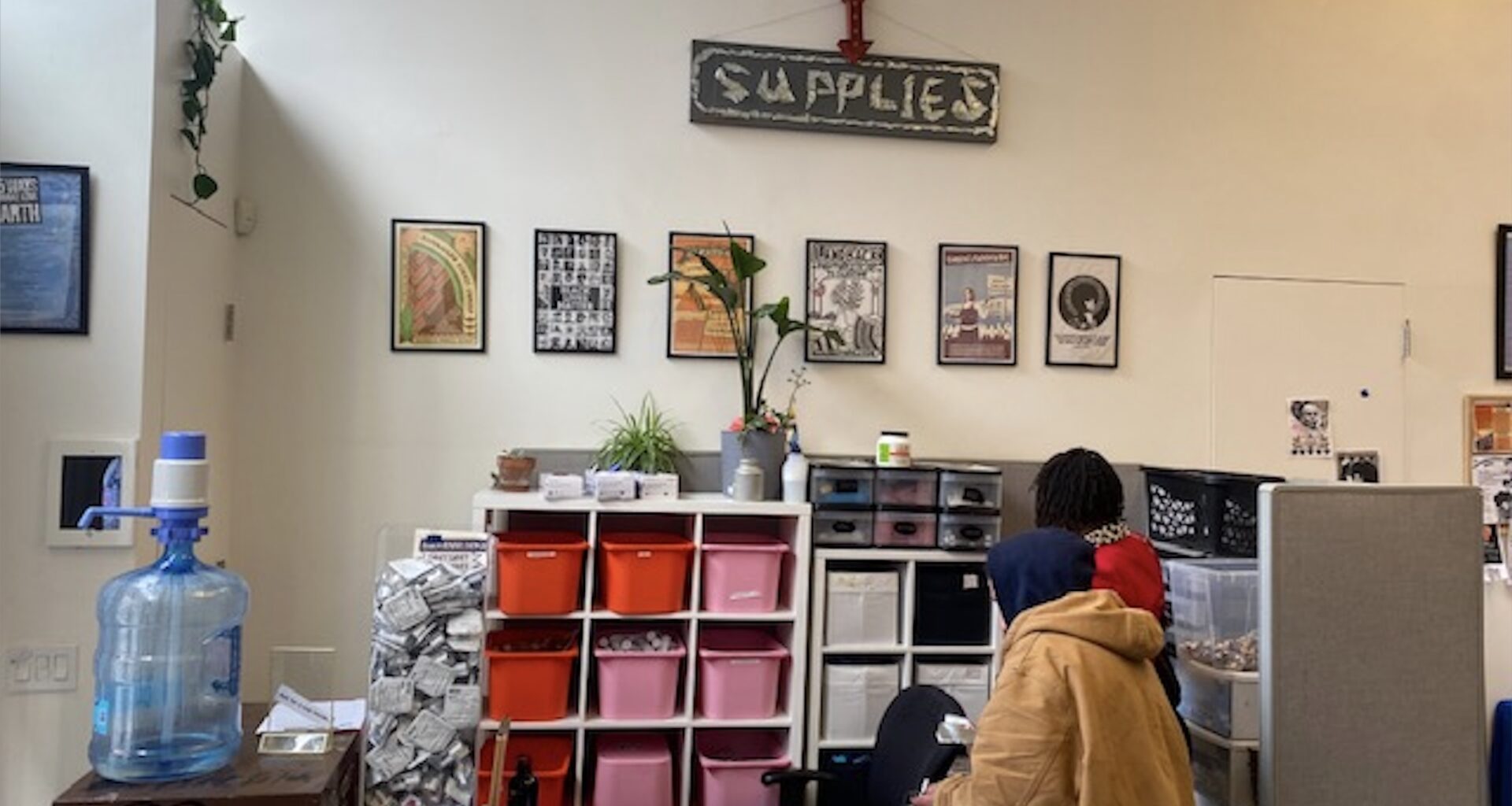People who are addicted to fentanyl, says Dorothy Dean, “don’t listen to nobody.”
For that reason, Dean is proud of every person she has talked into seeking medical help. But in late March, Vanguard Lab, an art and activist space on Sixth Street, where Dean did harm reduction work, found out that it was caught up in federal cuts made by the Department of Government Efficiency.
Its $250,000 federal grant was cut off abruptly. Vanguard Lab closed its doors a few weeks later. It had just opened them in August.
Vanguard is one of multiple groups providing harm reduction services and substance use treatment in San Francisco that have been left scrambling in the wake of DOGE cuts — just as a new mayoral administration has embarked on a massive and costly push to get drug users off the streets.
Vanguard was one of 102 organizations in the state funded by Hear Us, a federal grant administered by the Sierra Health Foundation Center and the California Department of Health Care Services. The grant was meant to expand “access to and utilization of behavioral health recovery services,” particularly for minority groups.
 People gather at Vanguard Lab. Photo courtesy of Ivy McClelland.
People gather at Vanguard Lab. Photo courtesy of Ivy McClelland.Other groups losing Hear Us funding include the San Francisco AIDS Foundation, which lost its $250,000 grant for policy and advocacy work to improve systems of care and improve HIV and harm reduction programs, and GLIDE, which used the same grant to launch a 24-week “Social Justice Academy” to guide people with substance use experiences to help design better approaches to treatment.
GLIDE managed to find alternate funding to keep the program running, but it had to scale back. The grant, the nonprofit said, “funded ambitious and innovative programs across California, and we know that the loss we have experienced is multiplied across the state.”
A Sierra Health Foundation spokesperson said that loss of Hear Us grant funds was “very concerning,” and that it is working at state and local levels to address the shortfall.
The federal funding cuts go beyond drug-related service providers. Compass Family Services, which gives provides homeless services including therapy to families, had to cut three positions previously funded by their grant. One was a provider focused on Black families, another a bilingual clinician.
San Francisco’s support system for these families is “pretty threadbare” as it is, said Hope Kamer, a Compass spokesperson. The cuts could result in wait times for getting care during a highly vulnerable time, she said.

Dean, who is homeless, was involved from the start of Vanguard’s harm reduction program. She organized her outreach carefully, asking drug users in the SoMa and Tenderloin what kind of activities would persuade them to come indoors, relax, and maybe listen to someone who thought that they could use some medical attention.
What they wanted, it turns out, to try and learn new things. At Vanguard’s warehouse at 531 Jessie St., people could attend art and other creative workshops, make pottery, sing karaoke, or eat a fresh meal. They could also pick up harm reduction supplies like needles or Narcan, use a toilet, or get their wounds treated. All of these offerings, former Vanguard workers there said, drew people in and helped them get back on track to recovery.
The goal, says Ivy Jeanne McClelland, one of Vanguard’s directors, was to make a place that felt like a refuge, and a place for joy. She estimated 600 to 800 people came in each week over the last six months.
“We believe that community space is a key part of healing,” McClelland said. “Having spaces where people can actually come together and get to know each other… that is part of recovery.”
And the community being built at Vanguard was unique, said artist Christine Johnson, who became a regular volunteer there. Other places in SoMa and the Tenderloin offer food and harm reduction supplies, but Vanguard’s closure created a “really deep sense of community loss.”
“It’s an opportunity for us to give Narcan and kind of just touch base with people,” Johnson said.
State Sen. Scott Wiener, hoping to backfill cuts, on March 27 announced new legislation SB-829 to create a state institute for scientific research, one that could award grants and sponsor research efforts independent of federal money.
Dorothy Dean, for her part, is hoping that Vanguard has success in fundraising for a new space to continue their services, as they’re planning to do.
Until then, though she lost her job, she hasn’t lost her calling — she’s still out doing the work on Sixth Street.
“We’re going to keep this going, we’re not going to stop,” Dean said. “They can’t stop us.”
